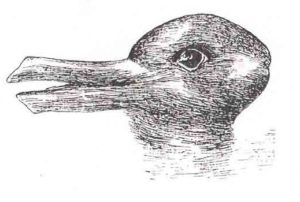Given that this election year is looking spicy, we’re going to be looking at politics and Christianity. Now we’re not going to be focusing on a theology of politics, or the relation of church or state, or some such abstract thing. Instead, our focus will be more practical, looking at ways to make good decisions, how we’re to know what God wants from us, and what all this means applied to the political arena. Next week’s discussion can be found here.

Week 1: Angry and Anxious
Politics and religion are the two topics most commonly banned at family get-togethers. Of course, if everybody in the family agrees, bashing the other side can be kinda fun. But then, there’s often the one guy who differs, but they’re just gonna keep their mouth shut—this is supposed to be a vacation right? Don’t want to spend my day off work fighting a war.
But why are these topics so difficult? Both of them can make us furious and/or anxious. The question is, what about politics and religion makes us angry and anxious?
People seem to agree that disagreement is a key component. If you’re a person who doesn’t like conflict to begin with, politics and religion are terrible topics because they are rife with differences, and that can make us anxious. If you just want people to get along then places where people inevitably disagree are inevitably going to cause stress. Anger starts with disagreement, but often needs an added ingredient like arrogance or bullheadedness. We might find the arrogant distasteful when they’re on our side (though, if we’re honest, sometimes they’re enjoyable to watch) but they are positively rage inducing when they’re on the other side.
Closely related to the arrogance problem is that of dishonesty or deliberate obliviousness. It’s one thing to disagree on the answer to a question but another to deliberately dodge the question because it makes you look bad, or worse, simply lie about the answer. This penchant for dishonesty, or spin, or slant, or whatever you want call it, is itself anxiety inducing. If we are constantly hearing diametrically opposed stories how are we supposed to know what is true? Even worse what are we supposed to do? How am I supposed to act responsibly if I doubt that the information I’m getting is reliable?
Sphere of Influence
Ok, this might all be true, but it doesn’t yet explain why religion and politics are particularly polarizing, anger and anxiety producing. What makes them worse than arguing over whether a hot-dog is a sandwich or not? The answer is pretty straightforward—both religion and politics deal with fundamental issues. The stakes are astronomical. They both can touch on an enormous number of issues that affect how we live every day. Here’s a list of areas where both religion and politics can affect how people live (with one added example to show how this can play out in real life).
|
Area of life |
Politics / government |
Religion |
|
1. What people eat 2. What people drink 3. What people wear 4. Where to live 5. Health 6. Jobs 7. Infrastructure 8. Worship 9. Morality |
Food rationing No alcohol / dry counties Indecent exposure laws Zoning laws Required vaccines Licensure requirements Roads / schools / hospitals Banning religions (DPRK) Education about LGBTQ |
Eating Kosher (Judaism) No alcohol (Islam) Modesty expectations Religious communities No blood transfusions (JW) Sex work bans Wells / schools / hospitals Ban on deconversion Theologies about LGBTQ |
Belief polarization
Well, there’s a lot that can be done, but here we’ll look at just one thing—being open-minded. We all recognize the danger of echo chambers and polarization (‘course we’re typically more worried about the other guy’s echo chamber rather than our own). We need to be humble and recognize our own fallibility.
One of my favorite examples of the surprisingness of human cognition is a phenomenon called belief polarization. To take a riff off the classic example (Lord, Ross, and Lepper (1979)), we’ll compare the reaction of two groups of people to new information about the death penalty. Suppose there is a scale from 0 to 100, where 0 means someone is completely against the death penalty, 100 is completely for, and 50 is undecided.
Suppose one group (call them group D) is at a 55, they are for the death penalty, but only mildly so. The other group is at 45, they are mildly against the death penalty (noD). The difference between the two is only 10 points. Now we show the two groups some more information, indeed—the exact same information, about the death penalty. What do you suppose will happen? My initial guess was that since that they were looking at the same info, their opinions would get closer. But in fact, the opposite happened, the opinions got more extreme. The 55s go to 65 and the 45s to 35. Now the difference between the two is 30 points! All by looking at the same information!
Now the standard explanation for this is that we as humans are much better at spotting flaws in other people’s opinions than our own. So with new information, there are new inconsistencies we see in the other’s view. Conversely, we easily see things that agree with our own view. So we add more support to our own view. Between the two we gain more confidence that our previous view is correct.
Now, obviously, this doesn’t always happen or nobody would ever change their mind about anything. What is interesting though, is that from what I’ve read, the most effective way of reversing polarization isn’t simply getting more data and arguing about it more. Instead, it is intellectual empathy. Instead of trying to objectively evaluate the data, we deliberately try to step into the other person’s shoes and see it from their perspective.
And this makes sense based on how we view data. Think about those trick images that can look like one thing or another, a duck or rabbit, a candlestick or two faces. In order for us to truly evaluate whether the image is more duck-like or rabbit-like, we need to be able to see it from both sides. If we’re a duck person, and we never even attempt to view it as a rabbit, then we can never really see how viewing it as a rabbit makes sense. If we can’t see it as a rabbit, we can’t really compare how well seeing it as a rabbit compares to seeing it as a duck.

Conclusion
So there’s our conclusion for the day. Politics and religion discussions can be infuriating and worrying for good reason. But don’t panic. Keep an open mind, try and see things from both sides. And, for Christians, remember God’s in control and that he’ll work it out for good in the end—He’s got this.